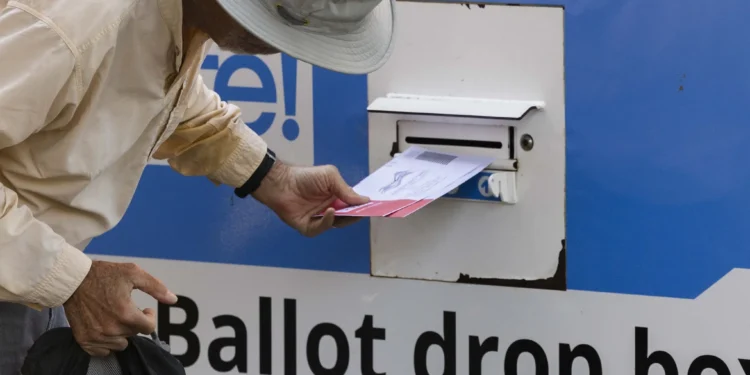With Washington’s primary election on August 5 just around the corner, Seattle voters will soon help narrow a crowded field of nine mayoral candidates. Leading the pack are incumbent Mayor Bruce Harrell and transit advocate Katie Wilson, both of whom have raised around $450,000 in campaign contributions, far ahead of the competition. Top vote-getters in the primary will move on to the general election on November 4.
Notable Candidates
Bruce Harrell (Incumbent Mayor)
Harrell is seeking a second term, a milestone Seattle hasn’t seen since Greg Nickels in 2005. First elected in 2021, the former city council member has positioned himself as a practical leader invested in public safety, tackling homelessness, and boosting transportation infrastructure. He earned endorsements from local and state Democratic leaders, including Governor Bob Ferguson and U.S. Senator Maria Cantwell.
Katie Wilson (Transit Riders Union Leader)
Wilson entered the race in March, driven in part by Harrell’s opposition to Proposition 1A, a newly approved social housing tax measure. As a co-founder and secretary of the Seattle Transit Riders Union, she leads on progressive issues like expanding public transit, tenant protections, and affordable housing. Endorsed by King County Democrats and raised funds rivaling Harrell’s campaign totals.
Ry Armstrong (Sustainable Seattle Director)
Armstrong previously ran for City Council in 2023. His platform emphasizes fair wages, better labor conditions, and affordable childcare. He has received endorsements from Democratic Municipal Officials and the LGBTQ+ Victory Fund and has raised over $100,000 in campaign funds.
Joe Mallahan (Former T-Mobile Executive)
Mallahan, who narrowly lost the 2009 mayoral race, is back on the ballot with a focus on community policing and alternative crisis response. His platform pledges regular patrol engagement and increased transparency. He has secured over $116,000 in funding thus far.
Joe Molloy (Non‑Profit Advocate & Homelessness Experience)
Molloy brings personal insight as someone who experienced homelessness. Running as a nonprofit board member, he presents housing insecurity from a lived- experience perspective , a narrative echoing throughout his campaign messaging.
Other Candidates
- Clinton Bliss, a physician advocating campaign finance reform and rejecting corporate money.
- Thaddeus Whelan, a U.S. Army veteran and renter in North Seattle.
- Isaiah Willoughby, a repeat candidate with prior filings and legal controversies.
Less prominent on the fundraising front are these candidates, who have thus far raised comparatively minimal campaign funding.
Why This Election Matters
Fundraising and Momentum
Harrell and Wilson dominate the race financially, leaving other candidates trailing in both name recognition and campaign resources. Their parity on contributions and strong local support hint at a tight competition come November.
Policy Fault Lines: Housing & Transit
Housing affordability and transit reform initiative Proposition 1A, approved earlier in 2025, marked a breaking point in the mayoral race. Wilson capitalized on the measure’s success to position herself as the progressive challenger to Harrell’s more establishment-oriented approach.
Seattle’s One-Term Mayoral Pattern
If reelected, Harrell would break a two-decade pattern in Seattle politics, becoming the first mayor to hold office for two consecutive terms since 2005. That historical context frames the stakes of this race for both incumbency and voter appetite for change.
What Comes Next
Seattle voters have until August 5 to cast ballots in the primary, which will determine the two top finalists advancing to the November 4 general election. The race’s core issues, public safety, homelessness, transportation, and affordable housing—are expected to stay firmly front and center in candidate messaging and outreach efforts.







